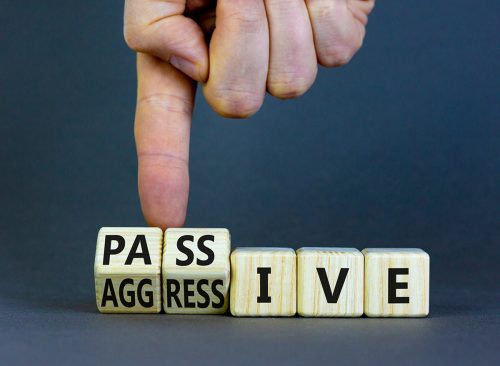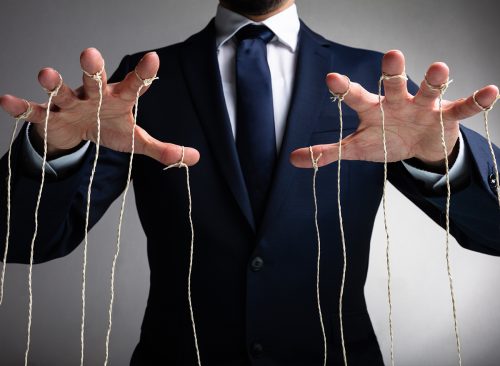10 Ways to Identify a Narcissist
There are two types of narcissism, each that come with major signs.

Narcissistic personality disorder is a mental health condition in which people have an unreasonably high sense of their own importance, according to the Mayo Clinic. The bad news is you probably have one in your life. “As a marriage and family therapist, about 90% of my practice involves helping patients deal with at least one narcissistic relationship in their life,” explains family therapist Paul Hokemeyer, Ph.D., author of the newly published book Fragile Power: Why Having Everything Is Never Enough; Lessons from Treating the Wealthy and Famous, “These patients come to me feeling frustrated, drained, confused, manipulated and inadequate.” In working with them, his central task is to help them understand why people develop narcissistic personalities, to explain the two key types of narcissism, which are grandiose and vulnerable narcissism, and to help them develop strategies to establish healthy relationships with themselves and the narcissist in their life.

The first type is called a “Grandiose narcissist,” says Dr. Hokemeyer. “Typically, when we think of a narcissist, we think of the men and women who are constantly in the news for their self-aggrandizement, insatiable need for attention, ferocious temper, and compulsive need to belittle those around them. In clinical terms, we refer to these individuals as grandiose narcissists,” he explains.

Grandiose narcissists are incapable of seeing anyone other than themselves. “They view other people in their lives as objects to serve their personal interests and agendas,” he says. “Through this lens, all of their interactions with you are about their needs, desires, and how you can feed their insatiable egos or help them achieve their insatiable demands.”

This type of narcissist will leave you feeling confused. “Grandiose narcissists are experts at engaging in what’s known as the narcissist cycle of abuse. Whenever they feel like they are not getting what they need out of a relationship, they lash out with anger or become a victim. In doing so, they regain the upper hand in the relationship by making you feel like you are a bad person, selfish and self-absorbed,” says.

You may also be left feeling violated: “Grandiose narcissists make us feel damaged,” explains Dr. Hokemeyer. “They are only capable of giving to a relationship if they feel they will benefit from it. As a result, their compliments to us feel hollow and manipulative and lead to us feeling used.”

If a person makes you feel like you are walking on eggshells, they could be a grandiose narcissist, histrionic, and highly volatile, says Dr. Hokemeyer. “They explode at the slightest perceived affront to their outsized ego and delusions of grandeur. They keep us off balance by vacillating between heaping praise on us and then, in a moment’s notice, can pivot into being hypercritical and downright mean to us,” he says.

Finally, they leave you feeling drained. “Grandiose narcissists suck the life force from us. They are constantly demanding more from us and criticizing us for not being able to give them enough of what they demand. They take pleasure in making us feel less than and incompetent,” he says.

Vulnerable narcissists are people who are highly insecure, self-conscious and constantly looking for ways that they are rejected or criticized by others, explains Dr. Hokemeyer. “In contrast to grandiose narcissists who have thick skin, vulnerable narcissists have thin skin.”

If you are constantly on the defensive, you could be dealing with a vulnerable narcissist, as they “are masters at being victims,” he says. “They manifest power passive-aggressively. Rather than screaming and raging out, they utilize tears and hurt to garner the power they need to feel secure in a relationship.”

Manipulation is another common tactic. “As mentioned above, vulnerable narcissists are passive-aggressive masters,” he reveals. “In its simplest expression, passive-aggressive behavior involves indirectly expressing anger by a failure to act or nonaction in the face of a need or request. So instead of expressing their anger directly, they fail to act in ways that are expected, leaving you holding the ball and taking responsibility for something they promised to do.”

Are you constantly feeling like you have to apologize? “Vulnerable narcissists are experts in playing the victim role. They are constantly accusing you of being aggressive, mean, or insensitive. The only way they will alter their view is if you apologize, and you do to make peace or restore a level of equilibrium in the relationship,” he explains.

If you feel like you always need to be the grown-up in the relationship, you could be dealing with a vulnerable narcissist, often highly resistant to assuming adult responsibilities. “They skirt these by a number of interpersonal techniques, all of which are based on their being a victim and unfairly judged by others,” he says.
RELATED: Surprising Signs You’ve Already Had COVID

Vulnerable narcissists are masters at making you feel like a mean, insensitive, and selfish human being, explains Dr. Hokemeyer. “They project their narcissistic traits on you over and over until you begin to doubt yourself and your integrity.”














